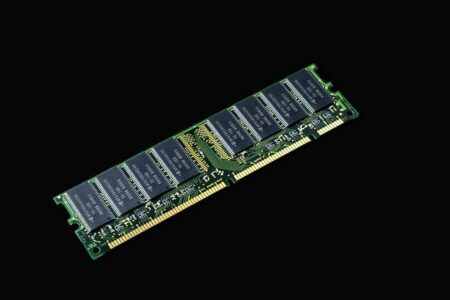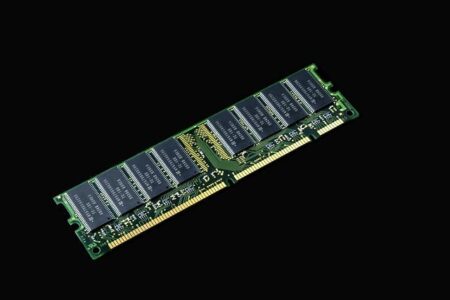A groundbreaking breakthrough in semiconductor technology has been achieved by a China-US research team, opening exciting new possibilities for innovation and collaboration across the global tech industry, reports the South China Morning Post
Browsing: semiconductor industry
The Trump administration has unleashed a wave of new security regulations that sharply restrict Nvidia’s chip sales to China, citing urgent national security threats. These measures dramatically tighten export controls on the most advanced semiconductor technology
In his New Year’s address, Xi Jinping proudly highlighted China’s stunning breakthroughs in large language models and chipmaking-signaling a bold leap forward in technology aimed at turbocharging AI innovation and dramatically reducing reliance on foreign technology
U.S. authorities allege that $160 million worth of export-controlled Nvidia chips were covertly smuggled into China, raising alarm bells over technology transfer and national security, CNBC reports
Nexperia China is actively seeking new wafer suppliers as it faces a high-stakes legal battle with a Dutch chipmaker, aiming to fortify its supply chain amid escalating trade tensions and fierce intellectual property disputes, sources reveal
China’s Moore Threads has just unveiled a groundbreaking new AI chip architecture, boldly positioning itself as a fierce challenger to industry titans Nvidia and AMD. This game-changing innovation has sparked renewed excitement in semiconductor stocks, reports TipRanks
A fierce showdown is unfolding over Trump’s decision to block AI chip sales to China. Supporters hail it as a vital move to protect national security, while critics warn it could spark economic chaos and strain US-China tech relations
Strong demand from China is propelling Nvidia (NVDA) to accelerate production of its state-of-the-art H200 chips. As reported by TipRanks, this bold strategy aims to capitalize on the explosive growth of AI adoption sweeping through the region
China has urged the Netherlands to encourage Nexperia, a top semiconductor company, to visit and engage in open dialogue. This call highlights escalating tensions within the intricate world of global technology and trade, Reuters reports
Nvidia is ramping up production of its H200 chips, fueled by a skyrocketing demand from China, sources told Reuters. This surge underscores the region’s explosive hunger for the latest breakthroughs in AI technology, CNBC reports
TSMC is set to elevate its second Japan fab with state-of-the-art 4nm technology, opening exciting new possibilities for advanced chip manufacturing designed specifically for Japanese customers. This ambitious move underscores strengthening tech collaborations and marks a major leap forward in semiconductor innovation throughout the region
Nvidia’s recent lobbying efforts in China have hit a major milestone, securing crucial regulatory approvals that boost its market presence like never before. However, experts caution that persistent geopolitical tensions and supply chain hurdles may temper the long-term benefits of these achievements
China is preparing to restrict access to Nvidia’s state-of-the-art H200 AI chips, even after recent export approvals were granted under the Trump administration, Reuters reports. This development underscores the ongoing tensions in US-China technology relations
China’s Nvidia, a leading AI chipmaker, has soared an incredible 425% amid a booming surge in demand for artificial intelligence technology. Experts say this explosive growth is only the beginning, signaling massive opportunities on the horizon for the AI industry
China’s semiconductor titan Moore Threads soared more than 400% in its trading debut following a staggering $1.1 billion IPO, marking a groundbreaking moment amid rising global chip industry tensions, CNBC reports
China has once again called on the Dutch government to stop the takeover of Nexperia, the semiconductor giant. This move underscores rising tensions over tech dominance and foreign investments, Reuters reports
US lawmakers are ramping up efforts to restrict Chinese chipmaking equipment imports for recipients of CHIPS Act grants, aiming to strengthen controls and curb tech transfer risks amid rising US-China semiconductor tensions, Reuters reports
America’s chip restrictions are intensifying the pressure on China’s tech industry, triggering significant supply chain disruptions and slowing the pace of innovation. As The Wall Street Journal reports, these hurdles are growing just as Beijing scrambles to discover new breakthroughs
China is gearing up to resume exports of Nexperia chips, Dutch Prime Minister Mark Rutte announced, sparking a wave of relief amid growing global concerns over tech supply shortages. This move is poised to send ripples through the semiconductor market like never before
Nexperia’s chip exports from China to Germany are poised to resume, a German company has confirmed. This exciting development signals a major relaxation of previous trade restrictions amid ongoing global semiconductor supply challenges



















